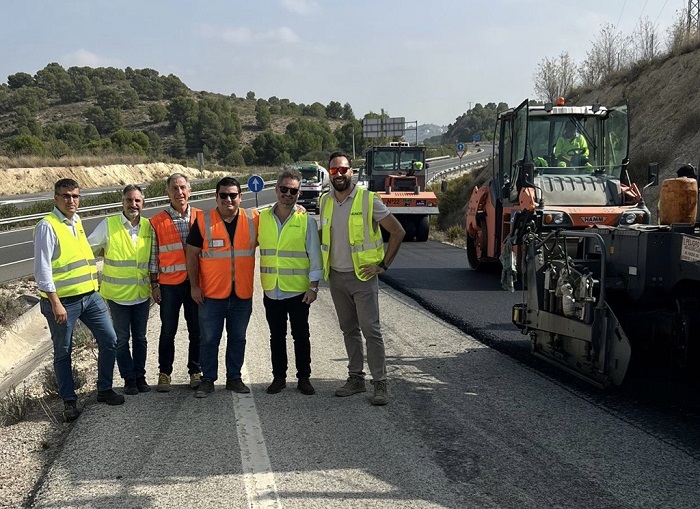We have created a truly unique additive for asphalt mixes, formulated with recycled vegetable oil and byproducts olive oil processing.
With this additive, the need to use standard petrochemical fossil melting agents is eliminated, as its composition contains 30-50% of recycled vegetable oils and 20-30% of other residues such as olive oil derived amurca. Repurposing of these by-products has been achieved thanks to nanotechnology through the use of graphene.
Thanks to Bioroad, asphalt mixes can be manufactured at lower temperatures, thus reducing energy consumption and the carbon footprint generated by traditional hot manufacturing processeses. These asphalt mixes are manufactured at 120-140 ºC (40 ºC less than the traditional process).

On the other hand, thanks to Bioroad it is also possible to manufacture what is commonly known as durable asphalt mixes. These are asphalt mixes that once manufactured can be stored either in bulk or in sacks and applied or used up to 5 years post-manufacture.
The additive not only makes the asphalt less polluting, but also provides greater resistance to fatigue and road wear due to the effects of water, temperature and use. As these materials are manufactured at a lower temperature, the aging of the bitumen is slower.
Bioroad was invented by Jorge Coelho, founder of Único Asfaltos, which has merged with Sacyr Green into Sacyr Único, a new Sacyr Green company, which will join CIRTEC in its strategy of developing sustainable products and solutions for the road in the field of the circular economy.
"With Bioroad, producing asphalt mixtures at lower temperatures that allow to be applied on site several months after manufacture is a reality and without sacrificing quality of conventional asphalts", explains Guillermo Rodriguez Marfil, Project Engineer at Sacyr Green.
The asphalts, which are durable post-application, have been measured for their rapid trafficability, fast curing, and macro and microtexture values, and are in accordance with the values required for the continuous granulometry mixes manufactured in the traditional hot method.

Application at AUNOR
Last November 2, concession company AUNOR, with the technical collaboration of CIRTEC, Sacyr and Único Asfalto, applied this asphalt mix on part of junctions in the Concession area.
The section in question was on the Autovía del Noroeste, a P3 company of the autonomous community of the Region of Murcia. This highway is the axis connecting the Northwest Regions with the city of Murcia. The junction between the RM-15 highway and the RM-532 road that connects the highway with the town of Cieza was selected as the section to apply the asphalt mix on.
"Accessways 3 and 4 were selected and half of each was treated with the hot mix asphalt and the other half with the semi-hot asphalt mix manufactured with Bioroad, in order to be able to compare the future performance of both types of mixes," says Juan Carlos Ruiz, head of AUNOR's Operation and Maintenance Department.
"By doing both sections simultaneously, one section with a semi-hot mix and another with a standard mix and monitoring their performances in the coming years will allow us to demonstrate through a real use case study that the quality of semi-hot asphalt mixes exceeds that of hot mixes, opening a new path to sustainability," explains Carlos Rodriguez, director of the Spanish Highways Department of Sacyr Concesiones.
